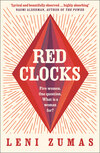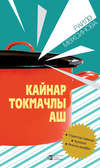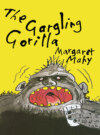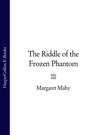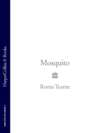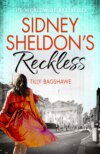Kitabı oku: «Red Clocks», sayfa 3
THE BIOGRAPHER
Can’t see the ocean from her apartment, but she can hear it. Most days between five and six thirty a.m. she sits in the kitchen listening to the waves and working on her study of Eivør Mínervudottír, a nineteenth-century polar hydrologist whose trailblazing research on pack ice was published under a male acquaintance’s name. There is no book on Mínervudottír, only passing mentions in other books. The biographer has a mass of notes by now, an outline, some paragraphs. A skein draft—more holes than words. On the kitchen wall she’s taped a photo of the shelf in the Salem bookstore where her book will live. The photo reminds her that she is going to finish it.
She opens Mínervudottír’s journal, translated from the Danish. I admit to fearing the attack of a sea bear; and my fingers hurt all the time. A woman long dead coming to life. But today, staring at the journal, the biographer can’t think. Her brain is soapy and throbbing from the new ovary medicine.
She sits in her car, radio on, throat shivering with hints of vomit, until she’s late enough for school not to care that her eye–foot–brake reaction time is slowed by the Ovutran. The roads have guardrails. Her forehead pulses hard. She sees a black lace throw itself across the windshield, and blinks it away.
Two years ago the United States Congress ratified the Personhood Amendment, which gives the constitutional right to life, liberty, and property to a fertilized egg at the moment of conception. Abortion is now illegal in all fifty states. Abortion providers can be charged with second-degree murder, abortion seekers with conspiracy to commit murder. In vitro fertilization, too, is federally banned, because the amendment outlaws the transfer of embryos from laboratory to uterus. (The embryos can’t give their consent to be moved.)
She was just quietly teaching history when it happened. Woke up one morning to a president-elect she hadn’t voted for. This man thought women who miscarried should pay for funerals for the fetal tissue and thought a lab technician who accidentally dropped an embryo during in vitro transfer was guilty of manslaughter. She had heard there was glee on the lawns of her father’s Orlando retirement village. Marching in the streets of Portland. In Newville: brackish calm.
Short of sex with some man she wouldn’t otherwise want to have sex with, Ovutran and lube-glopped vaginal wands and Dr. Kalbfleisch’s golden fingers is the only biological route left. Intrauterine insemination. At her age, not much better than a turkey baster.
She was placed on the adoption wait-list three years ago. In her parent profile she earnestly and meticulously described her job, her apartment, her favorite books, her parents, her brother (drug addiction omitted), and the fierce beauty of Newville. She uploaded a photograph that made her look friendly but responsible, fun loving but stable, easygoing but upper middle class. The coral-pink cardigan she bought to wear in this photo she later threw into the clothing donation bin outside the church.
She was warned, yes, at the outset: birth mothers tend to choose married straight couples, especially if the couple is white. But not all birth mothers choose this way. Anything could happen, she was told. The fact that she was willing to take an older child or a child who needed special care meant the odds were in her favor.
She assumed it would take a while but that it would, eventually, happen.
She thought a foster placement, at least, would come through; and if things went well, that could lead to adoption.
Then the new president moved into the White House.
The Personhood Amendment happened.
One of the ripples in its wake: Public Law 116‑72.
On January fifteenth—in less than three months—this law, also known as Every Child Needs Two, takes effect. Its mission: to restore dignity, strength, and prosperity to American families. Unmarried persons will be legally prohibited from adopting children. In addition to valid marriage licenses, all adoptions will require approval through a federally regulated agency, rendering private transactions criminal.
Woozy with Ovutran, inching up the steps of Central Coast Regional, the biographer recalls her high school career on the varsity track team. “Keep your legs, Stephens!” the coach would yell when her muscles were about to give out.
She informs the tenth-graders they must scrub their essay drafts clean of the phrase History tells us. “A stale rhetorical tic. Means nothing.”
“But it does,” says Mattie. “History is telling us not to repeat its mistakes.”
“We might reach that conclusion from studying the past, but history is a concept; it isn’t talking to us.”
Mattie’s cheeks—cold white, blue veined—go red. Not used to correction, she’s easily shamed.
Ash raises her hand. “What happened to your arm, miss?”
“What? Oh.” The biographer’s sleeve is pushed way up above the elbow. She yanks it down. “I gave blood.”
“It looks like you gave, like, gallons.” Ash rubs her piglet nose. “You should sue the blood bank for defamation.”
“Disfigurement,” says Mattie.
“You got straight disfigured, miss.”
By noon the cloudy throb behind her eyebrows has dialed itself back. In the teachers’ lounge she eats maize puffs and watches the French teacher fork pink thumbs out of a Good Ship Chinese takeout box.
“Certain kinds of shrimp produce light,” she tells him. “They’re like torches bobbing in the water.”
How can you raise a child alone when all you’re having for lunch is vending-machine maize puffs?
He grunts and chews. “Not these shrimp.”
Didier has no particular interest in French but can speak it, the tongue of his Montreal childhood, in his sleep. Like being a teacher of walking or sitting. For this predicament he blames his wife. During his first conversation with the biographer, years ago, over crackers and tube cheese in the lounge, he explained: “She says to me, ‘Aside from cooking you have no skills, but at least you can do this, can’t you?’—so ici. Je. Suis.” The biographer then imagined Susan Korsmo as a huge white crow, shading Didier’s life with her great wing.
“Shrimp are sky-high in cholesterol,” says Penny, the head English teacher, deseeding grapes at the table.
“This room is where my joy dies,” says Didier.
“Boo hoo. Ro, you need nourishment. Here’s a banana.”
“That’s Mr. Fivey’s,” says the biographer.
“How can anyone be sure?”
“He wrote his name on it.”
“Fivey will survive the loss of one fruit,” says Penny.
“Ooosh.” The biographer holds her temples.
“You okay?”
Thudding back down into the chair: “I just got up too fast.”
The PA system sizzles to life, coughs twice. “Attention students and teachers. Attention. This is an emergency announcement.”
“Please be a fire drill,” says Didier.
“Let us all keep Principal Fivey in our thoughts today. His wife has been admitted to the hospital in critical condition. Principal Fivey will be away from campus until further notice.”
“Should she be telling everyone this?” says the biographer.
“I repeat,” says the office manager, “Mrs. Fivey is in critical condition at Umpqua General.”
“Room number?” yells Didier at the wall-mounted speaker.
The principal’s wife always comes to Christmas assembly in skintight cocktail dresses. And every Christmas Didier says: “Mrs. Fivey’s gittin sixy.”
The biographer drives home to lie on the floor in her underwear.
Her father is calling again. It has been days—weeks?—since she answered.
“How’s Florida?”
“I am curious to know your plans for Christmas.”
“Months away, Dad.”
“But you’ll want to book the flight soon. Fares are going to explode. When does school let out?”
“I don’t know, the twenty-third?”
“That close to Christmas? Jesus.”
“I’ll let you know, okay?”
“Any plans for the weekend?”
“Susan and Didier invited me to dinner. You?”
“Might drop by the community center to watch the human rutabagas gum their feed. Unless my back flares up.”
“What did the acupuncturist say?”
“That was a mistake I won’t make twice.”
“It works for a lot of people, Dad.”
“It’s goddamn voodoo. Will you be bringing a date to your friends’ dinner?”
“Nope,” says the biographer, steeling herself for his next sentence, her face stiff with sadness that he can’t help himself.
“About time you found someone, don’t you think?”
“I’m fine, Dad.”
“Well, I worry, kiddo. Don’t like the idea of you being all alone.”
She could trot out the usual list (“I’ve got friends, neighbors, colleagues, people from meditation group”), but her okayness with being by herself—ordinary, unheroic okayness—does not need to justify itself to her father. The feeling is hers. She can simply feel okay and not explain it, or apologize for it, or concoct arguments against the argument that she doesn’t truly feel content and is deluding herself in self-protection.
“Well, Dad,” she says, “you’re alone too.”
Any reference to her mother’s death can be relied on to shut him up.
There was Usman for six months in college. Victor for a year in Minneapolis. Liaisons now and again. She is not a long-term person. She likes her own company. Nevertheless, before her first insemination, the biographer forced herself to consult online dating sites. She browsed and bared her teeth. She browsed and felt chest-flatteningly depressed. One night she really did try. Picked the least Christian site and started typing.
What are your three best qualities?
1 Independence
2 Punctuality
3
Best book you recently read?
Proceedings of the “Proteus” Court of Inquiry on the Greely Relief Expedition of 1883
What fascinates you?
1 How cold stops water
2 Patterns ice makes on the fur of a dead sled dog
3 The fact that Eivør Mínervudottír lost two of her fingers to frostbite
But the biographer didn’t feel like telling anyone that. Delete, delete, delete. She could say, at least, she had tried. The next day she called for an appointment at a reproductive-medicine clinic in Salem.
Her therapist thought she was moving fast. “You only recently decided to do this,” he said, “and already you’ve chosen a donor?”
Oh, therapist, if only you knew how quickly a donor can be chosen! You turn on your computer. You click boxes for race, eye color, education, height. A list appears. You read some profiles. You hit PURCHASE.
A woman on the Choosing Single Motherhood discussion board wrote, I spent more time dead-heading my roses than picking a donor.
But, as the biographer explained to her therapist, she did not choose quickly. She pored. She strained. She sat for hours at her kitchen table, staring at profiles. These men had written essays. Named personal strengths. Recalled moments of childhood jubilance and described favorite traits of grandparents. (For one hundred dollars per ejaculation, they were happy to discuss their grandparents.)
She took notes on dozens and dozens—
Pros:
1 Calls himself “avid reader”
2 “Great cheekbones” (staff)
3 Enjoys “mental challenges and riddles”
4 To future child: “I look forward to hearing from you in eighteen years”
Cons:
1 Handwriting very bad
2 Commercial real-estate appraiser
3 Of own personality: “I’m not too complicated”
—then narrowed it to two. Donor 5546 was a fitness trainer described by sperm-bank staff as “handsome and captivating.” Donor 3811 was a biology major with well-written essay answers; the affectionate way he described his aunts made the biographer like him; but what if he wasn’t as handsome as the first? Both of their health histories were perfect, or so they claimed. Was the biographer so shallow as to be swayed by handsomeness? But who wants an ugly donor? But 3811 was not necessarily ugly. But was ugly even a problem? What she wanted was good health and a good brain. Donor 5546 claimed to be bursting with health, but she wasn’t sure about his brain.
So she bought vials of both. She wouldn’t stumble upon 9072, the just-right third, for another couple of months.
“Do you feel undeserving of a romantic partner?” asked the therapist.
“No,” said the biographer.
“Are you pessimistic about finding a partner?”
“I don’t necessarily want a partner.”
“Might that attitude be a form of self-protection?”
“You mean am I deluding myself?”
“That’s another way to put it.”
“If I say yes, then I’m not deluded. And if I say no, it’s further evidence of delusion.”
“We need to end there,” said the therapist.
The polar explorer liked to stand on the turf roof of the two-room cottage and think of her feet being precisely above the head of her mother, who was stirring or cutting or pounding; and how many inches of grass and soil lay between them; and how she was above, her mother below, reversing the order, flipping the world, with nobody able to tell her it couldn’t be flipped.
Then she would be called in to help boil the puffin.
THE MENDER
Walks home from the library the long way, past the school. The three o’clock bell is big over the harbor, flakes of bronze dropping slow to the water, bell in her mouth, bell in her scabbard. The blue school doors open: boots and scarves and shouts. Part-hid behind a bitter cherry, the mender waits. A string of Aristotle’s lanterns—the spiky teeth of sea urchins—hangs on her neck as protection. Last week she stood here an hour until the last child came out and the doors stopped; but the girl she was waiting for did not appear.
The mender herself performed quite poorly at Central Coast Regional, which she left, fifteen years ago, without a diploma. Fails to meet minimum standards. Acts deliberately uninterested in what goes on in class. Oh bitches, it was no act. Her brain wasn’t even in the room. In class the mender made sure never to talk except to fled souls or a bulb moon blown down into the stomach of the ocean. Her brain cells thrumming in their helmet went off to the forest road, where lay mole mother torn open by owl, her spent babies like red seeds; or to frondlets of sea lawn dragged into mazes by crabs. Her body stayed in the room, but her brain didn’t.
They come through the blue doors, little and big, bundled for weather: fishermen’s children, shopkeepers’ children, waitresses’ children. Girls with white cheek paint and black eyelids and crimson lips who are not the girl she is waiting for. The girl she is waiting for doesn’t wear makeup, at least not that the mender can tell. She smells smoke. Her aunt Temple’s brand. Is Temple close? Has Temple come—? Stupid, stupid, they don’t come back. It’s the blond weasel, who teaches at the school. His hair and his teeth go in all directions. She has seen him with his daughter and son on the cliff path, pointing at the water.
“Looking for someone?” he says.
She gives him the side-eye.
The blond weasel sucks and blows. “Seems like you are.”
“No,” she says, and goes.
She shouldn’t be seen trying to see the girl. People already think she’s unhinged, a forest weirdo, a witch. She is younger than the broomy witches people know from TV, but that doesn’t stop them whispering.
Up the cobbly lane to the cliff path. Then back and back into the trees. A Douglas-fir was felled on a hillside, sawn into logs, truck-hauled to a mill. Boards were cut and trimmed, planed true. A man bought the boards and notched them together to make a cabin. Two rooms and a toilet closet. Wood stove. Double sink. A cupboard north and a cupboard south. The lamps and mini fridge run on batteries. Showerhead outside, nailed up. Wintertime she sponge bathes or stinks. The goat shed and chicken coop sit behind the cabin on either side of a dead black hawthorn, lightning split. In its cleft the mender has built nest boxes for the owls, swallows, marbled murrelets, golden-crowned kinglets.
She ought to be more careful. Can’t let people see her watching. The yellow-haired, tumble-toothed weasel looked suspicious. It is no crime to watch someone, but humans like to name these things normal and those things peculiar.
Clementine comes to the mender’s door with a picnic cooler and a pain. Her last complaint was vicious burning when she peed; today’s pain is new. “Pants off and lie down,” says the mender, and Clementine unzips herself, kicks away the jeans. Her thighs are white and very soft, underwear the size of a shoelace. She plumps back on the mender’s bed and opens her knees.
A vesicle on Clementine’s south lip, the inner fold, white-red in the browny pink: how much does it hurt?
“Oh God, a lot. Sometimes at work I’m like ‘Eeesh!’ and they think I’m—Anyway, do I have syphilis?”
“No. Plain old cunt wart.”
“My vadge isn’t having a good year.”
The ointment: emulsion of purslane, bishopswort, and devil’s claw in sesame oil. She dabs a few drops on the wart, recaps the vial, hands it to Clementine. “Put this on it twice a day.” More warts are likely to join it, possibly a lot more, but she doesn’t see cause to say this.
After Clementine leaves, the mender misses her, wants back the soft white thighs. She likes her ladies big-sirenic, mermaids of land, pressing and twisting in fleshful bodies.
Out in the shed she pours a scoop of grain and waits for Pinka and Hans to come galloping. Hans nuzzles the mender’s crotch, and Pinka lifts a front hoof to be shaken. Hello, beautifuls. Their tongues are hard and clean. First time she saw a goat’s pupil—rectangular, not round—she felt a stab of recognition. I know you, strangeness. They will never be taken from her. They know to behave, now, after that mischief near the trail.
Clementine brought black rockfish as payment. Her brothers are fishermen. The mender lifts it from the cooler, plops it into a bowl, picks up the little knife. She feeds the flesh to Malky and crunches the bones in her own mouth. The eyes she throws into the woods. Malky needs protein for all the hunting he does. Gone for days and comes back thin. Fish bones shouldn’t be feared; you just have to chew them right so they won’t pierce your throat walls or stomach lining.
“Your science teacher will tell you,” said Temple, “fish bones are pure calcium and can’t be digested by the human body, but let me assure you, that’s not the whole story.” One of the things the mender loved best about her aunt was “let me assure you.” That and she cooked regular meals. Not once while living with Temple did the mender have to eat sautéed condiments for dinner. Temple became her guardian after the mender’s mother left a note saying Your better off with auntie don’t worry I will send letters! The mender was eight years old and herself not the best speller, but she noticed that the first word of the note was wrong.
Temple said the things she sold in her shop, Goody Hallett’s, were props for tourists; but if her niece happened to be interested in the true properties of alchemy, she could teach her. Magic was of two kinds: natural and artificial. Natural magic was no more than a precise knowledge of the secrets of nature. Armed with such knowledge, you could effect marvels that to the ignorant seemed miracles or illusions. A man once cured his father’s blindness with the gall bladder of a dragonet fish; the beat of a drum stretched with the skin of a wolf would shatter a drum stretched with the skin of a lamb.
The mender bottled her first tincture soon after her mother left. Per Temple’s instructions, she gathered dozens of stalks of flowering mullein, yellow and shaped cheerfully. She picked the flowers and laid them to dry on a towel. Scooped them into a glass jar with chips of garlic, filled the jar with almond oil, left the jar on the sill for a month. Then she strained the oil into six small brown bottles, which she lined up on the kitchen counter—she was already tall enough—and brought Temple to see. Her aunt stood over her, aswirl with red hair, all that long, ropy, sparkling hair, and said, “Well done!” and it was the first time in her life the mender could remember being praised for doing something instead of for not doing it. (Not talking, not crying, not complaining when her mother took six hours to come back from the store.) “Next time your ear hurts,” said Temple, “this is what you’ll use.” The promise of fixing and curing sent hot waves through the mender’s belly. Show them how Percivals do.
When she wakes, the cabin is so dark from the rain and the trees, she doesn’t know it is morning. But it is, and Malky is scratching, and the door is knocking.
She drinks a tea of horse-flavored ashwagandha. Eats brown bread. The new client wants nothing but water. Her name is Ro Stephens. Face dry and worried, hair dry and dull (feeble blood?), body thin (not perilously). She has lost people, the mender senses. A tiny smell, like a spoonful of smoke.
“I’ve been trying for a long time with Dr. Kalbfleisch at Hawthorne Reproductive Medicine.”
The mender has heard of Kalbfleisch from other clients. One described him as a NILF: Nazi I’d Like to Fuck.
“So you’ve been taking their medications.”
“A shit ton, yes.”
“How’s your cervical mucus?”
“Fine, I guess?”
“Does it resemble egg whites, near ovulation?”
“For a day or two. But my period’s not—that regular. With the medications it gets better, but still it’s not, like, clockwork.”
She is so worried. And trying to hide the worry. Her face keeps twitching out of its behaving lines, cracking with What if? What then? then smoothing, obeying again. Deep down she doesn’t believe the mender can help, no matter how much she wants to believe it. This is a person unaccustomed to being helped.
“Let’s see your tongue.”
White scum over the pink.
“You need to stop drinking milk.”
“But I don’t—”
“Cream in coffee? Cheese? Yogurt?”
Ro nods.
“Stop all of that.”
“I will.” But Ro looks like she’s thinking I didn’t come here for nutrition tips.
Eat warm and warming foods. Yams, kidney beans, black beans, bone broth. More red meat: the clock walls need building. Less dairy: the tongue is damp. More green tea: the walls are weakish still. All in the elementals, bitches. Everyone wants charms, but thirty-two years on earth have convinced the mender charms are purely for show. When the body is slow to do something, or galloping too fast toward death, people want wands waved. Broth? That’s it? The mender teaches them to boil meat bones for days. To simmer seed and stem and dried wrack, strain it, drink it. Womb tea makes a cruel stench.
She pulls down the tea jar from the north cupboard. Shakes some into a brown bag, tapes it closed, hands it to Ro. “Heat this up in a big pot of water. After it boils, turn the heat down and simmer for three hours. Drink a cup every morning and every night. You won’t like the taste.”
“What’s in it?”
“Nothing harmful. Roots and herbs. They’ll make your lining lusher and your ovaries stronger.”
“Which roots and herbs, exactly?”
She’s one of those people who think they will understand something if they hear its name, when really they will only hear its name.
“Dried fleeceflower, Himalayan teasel root, wolfberry, shiny bugleweed, Chinese dodder seed, motherwort, dong quai, red peony root, and nut grass rhizome.”
The tea tastes (the mender has tried it) like water buried underground for months in a bowl of rotted wood, swum through by worms, spat into by a burrowing vole.
The hair on Ro’s upper lip. The irregular bleeding. The scummy tongue. The dryness.
“Has Dr. Kalbfleisch checked you for PCOS?”
“No—what’s that?”
“Polycystic ovary syndrome. It affects ovulation, so it could be contributing.” Seeing Ro flash with fear, she adds: “A lot of women have it.”
“Wouldn’t he have mentioned it, though? I’ve been seeing him for over a year.”
“Ask for a test.”
Ro has a gentle face—freckled, laugh lined, sad in the mouth corners. But her eyes are angry.
